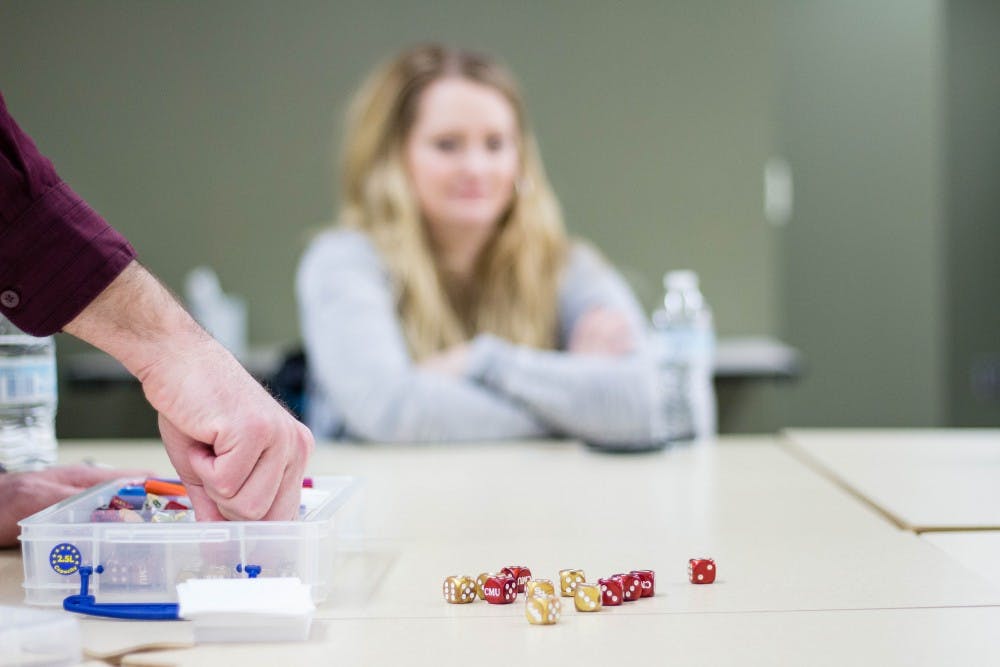Center for Learning through Games and Simulations completes first year of trial

Dice are laid out on a table before a game-based learning discussion March 15 in the Center for Excellence in Teaching and Learning in the Charles V. Park Library.
After the Center for Learning through Games and Simulations was made an official center at Central Michigan University in August 2018, it has now completed its first academic year in its ongoing three-year trial.
Originally called the Institute of Simulations and Games, the Center for Learning through Games and Simulations was deemed official last year and given three years to see if it would have an impact on the learning of students.
With its three-year trial, the center now has more funding to support faculty research of game-based learning, support conference travel and provide funding for the purchase and exposition of games and materials.
The center has participating faculty from across the university, with history faculty Jonathan Truitt serving as the director.
“Our goal is to support other faculty members who are engaged in using games and simulations to teach,” Truitt said. “We also do wider outreach where we support school district who are interested in learning how to use games and simulations as well.”
Truitt said that the center also has courses for students who are future educators or going into business to learn how to use games in teaching or training.
“We work with faculty to develop games, we work with students to develop games,” he said.
Truitt said the games are usually not electronic and consist of board game or role-playing style games that allow students to interact with each other and the situations.
Gamified courses give students the opportunity to learn without being in a class that is primarily lecture-based, said Holt junior Rachel Bennick.
“Game-based learning is more engaging because you are actively doing something and not just participating in conversation,” Bennick said.
She said the gamified learning style isn’t for everyone, but benefits some students more than normal lecture courses would.
“Gamification is taking a class and flipping it on its head,” said Katie Reck the Department of Human Environmental Studies faculty in the center. “I use gaming elements and apply them to the course.”
Gamified courses go farther than just playing Jeopardy or acting out events.
“You are playing a role, you are doing research outside of class on how to better play your role and the more you do it the better you do in the game,” Bennick said. “It adds a sense of competition, which most people are receptive to.”
The center is currently working on compiling a list of all the courses that are a part of the Center for Learning Through Games and Simulations.







